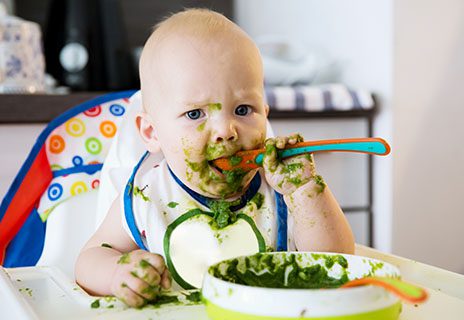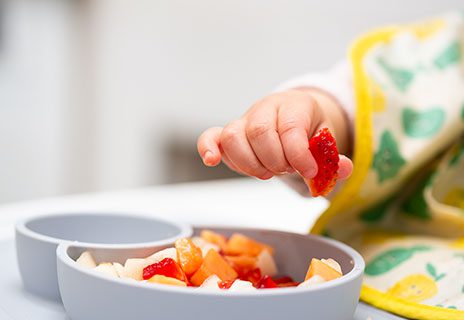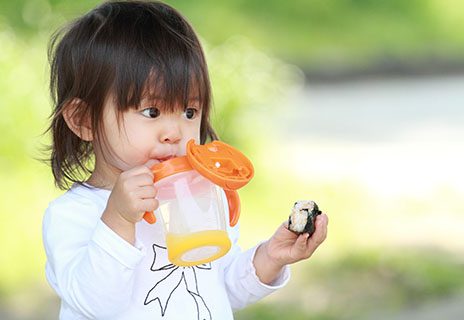
Encouraging Healthy Bowel Movements in Infants

The Illawarra Early Parenting Centre is well known for helping families with sleep and settling problems, but sleep is really just one piece of the puzzle. Often dietary factors can play a large role in behavioural concerns and sleep disturbances. Constipation or hard stools is a common complaint among infants and toddlers, particularly from 6 months of age when they begin their solids journey. Here are a few things to consider to help keep your little one’s bowel movements healthy:
Offer variety – Give your child a range of foods from all the food groups – fruits, vegetables, legumes, wholegrains, ground nuts/seeds or nut/seed pastes, lean meats/meat alternatives, eggs, natural yoghurt, cheese, plain cow’s milk (do not give cow’s milk as a drink before 12 months). You don’t need to exclude any food groups from your child’s diet unless your baby/child has a medical reason that requires you to do so (see this link HERE for information on introducing solids). If your family is following a vegetarian diet seek advice on how to ensure your baby gets enough protein, vitamin B12, iron and complete nutrition.

From 6 months of age make sure you are offering small sips of cooled boiled water in a free-flowing sippy cup/or open cup across the day. This helps keep your baby hydrated and is also a great opportunity to let your baby learn to drink from a cup HERE. After 12 months you no longer need to boil the water before giving it to your child.

- Pears, plums/prunes and peaches can often help when baby’s stools are a little hard – try adding any of these fruits to your child’s diet (in appropriate serve size for their age). Stewed is a great way to serve these foods. A couple of chopped up prunes/plums for a toddler can often result in a bowel movement within a few hours. When buying dried fruits avoid those that have added preservatives and sulphurs.
- A gentle tummy massage and moving of the legs in bicycle movement for babies can sometimes help move the poo along.
- Getting young children active and moving around can help – don’t let your child sit watching TV or playing on the iPad being inactive for long periods of time as this reduces activity levels.
- Avoid highly processed cereals and breads – aim for wholegrain choices. For example, porridge with fresh fruit for breakfast, wholemeal or wholegrain bread for sandwiches. Cereals like corn flakes, rice bubbles, coco pops, etc. are all highly processed and are not a good start to the day.
- Try not to give your child highly processed snack foods or meals. Cup-cakes, muffins, packets of chips, biscuits, chocolate, lollies all fill up little tummies and leave less room for healthy and nourishing foods. These foods should only be eaten occasionally, they are not everyday foods.
- Children over 12 months of age should not have more than 500ml milk per day. If they have more than this it can fill them up and lead to reduced fibre intake (vegetables, fruit, wholegrains, legumes, etc.), therefore increasing the risk of constipation.
Seek medical advice from your GP if constipation continues in babies/children for more than 2 days OR your child has frequent hard bowel movements. Diet does not always resolve constipation, so medical advice is important.
This information is intended for children at least 6 months or older. If your child is under 6 months of age and you suspect they are constipated, you should speak to your family doctor or child and family health nurse as soon as possible.
This article was kindly provided by Rebecca Emmett, owner of Munchkin Nutrition and Dietetics and consultant Early Childhood Dietitian at the Illawarra Early Parenting Centre. At the Illawarra Early Parenting Centre, each of our little patients receive an individualised treatment plan which is delivered by a multidisciplinary team of medical professionals. Rebecca is one of the knowledgeable allied health experts at the centre who can help parents and their children work through challenges related to feeding and nutrition.
For more information please contact the Illawarra Early Parenting Centre on 02 4255 5000.





